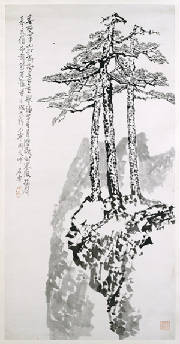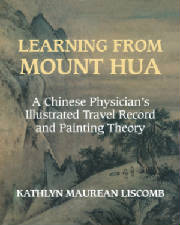|
Textual ConĚtext
:
The circumstances that form the setting for an event, statement, or idea, and in terms of which it can be fully understood
and assessed within context.
The parts of something written or spoken that immediately precede and follow a word or passage and clarify its meaning.
Historical Context
:
Historical context refers to the moods, attitudes, and conditions that existed in a certain time. Context is the "setting"
for an event that occurs, and it will have an impact on the relevance of the event. Context is an important factor to consider
when describing something in history.
Thus, to compare the American 'gun slinger/
cowboy' with the Japanese, lordless
Samurai, the Ronin, is an extreme time-context
jump and history ignorance.
Text intrinsically encompasses both near and far linkages,
in this regard, text and the history leading up to its exposure, is akin to concentric layers of tubing :
> the core idea that passes throughout
> the surrounding idea [ strongly or weakly ] influential
> the exo- laminations,
existing, but of neutral influence.
|
|
Iconic Symbols :
To understand the context of the 'great sage' icon on the 'great mountain, requires some peripheral examination
as to why this is or is not important; or why it would seem significant to the story narratives given.
Achievement : High Standard, above ordinary
Geography reference : Center
Nature Metaphor: 'flowery' as petals surrounding.
Mountain icon: Mt Hua Yue 華嶽
Poet-verse icon
Art icon
Professional metaphor
Music :
Theory : Shui shan water/ mountain
Seasonal Metaphor for continual surviance
Martial Heros:
Emperor Tai Zu-Taizu-quan, 太祖拳, Great Ancestor Boxing
Mount Hua [Chen]
Sect, 華嶽希夷門 'Chen' XiYi Men, 'taoist' Sect
Hua Yue 'Sword' Heros Cult 華山論劍
mt. hua-shan lun-jian
|
 |
|
|
|
 |
|
Artistic inspiration :
| Stately Pines on Mount Hua |

|
| Met Museum Art |
Learning From Mount Hua :
"Learning from Mt. Hua: A Chinese Physician's Illustrated Travel Record and Painting Theory". Res Monographs in Anthropology
and Aesthetics, no. 3, New York: Cambridge University Press, 1993.
| Leasrning from Mount Hua |

|
|
 |
|
|
|
|

